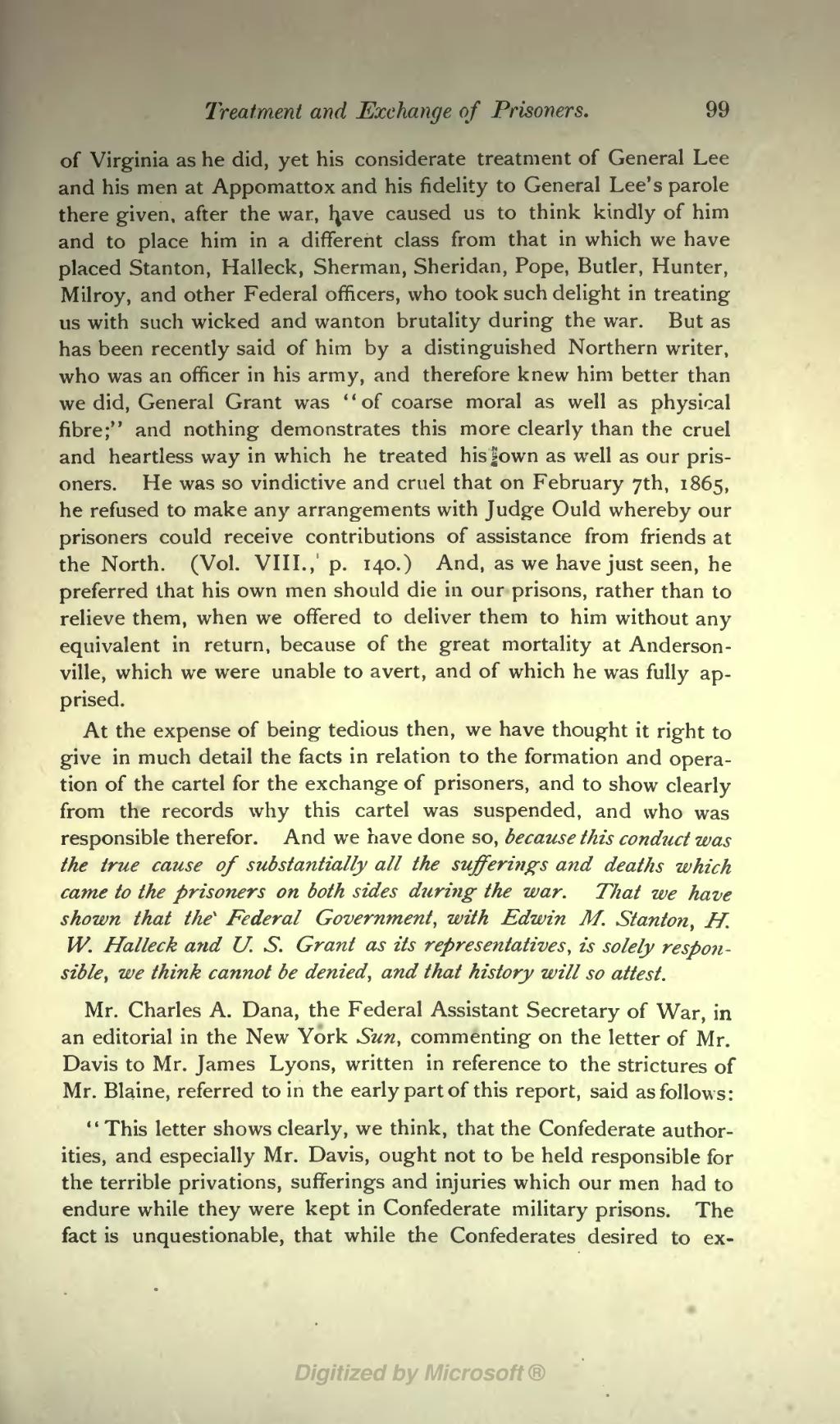Treatment and Exchange of Prisoners. 99
of Virginia as he did, yet his considerate treatment of General Lee and his men at Appomattox and his fidelity to General Lee's parole there given, after the war, fyave caused us to think kindly of him and to place him in a different class from that in which we have placed Stanton, Halleck, Sherman, Sheridan, Pope, Butler, Hunter, Milroy, and other Federal officers, who took such delight in treating us with such wicked and wanton brutality during the war. But as has been recently said of him by a distinguished Northern writer, who was an officer in his army, and therefore knew him better than we did, General Grant was "of coarse moral as well as physical fibre;" and nothing demonstrates this more clearly than the cruel and heartless way in which he treated hisfown as well as our pris- oners. He was so vindictive and cruel that on February yth, 1865, he refused to make any arrangements with Judge Ould whereby our prisoners could receive contributions of assistance from friends at the North. (Vol. VIII., p. 140.) And, as we have just seen, he preferred that his own men should die in our prisons, rather than to relieve them, when we offered to deliver them to him without any equivalent in return, because of the great mortality at Anderson- ville, which we were unable to avert, and of which he was fully ap- prised.
At the expense of being tedious then, we have thought it right to give in much detail the facts in relation to the formation and opera- tion of the cartel for the exchange of prisoners, arid to show clearly from the records why this cartel was suspended, and who was responsible therefor. And we have done so, because this conduct was the true cause of substantially all the sufferings and deaths which came to the prisoners on both sides during the war. That we have shown that the" Federal Government, with Edwin M. Stanton, H. W. Halleck and U. S. Grant as its representatives, is solely respon- sible, we think cannot be denied, and that history will so attest.
Mr. Charles A. Dana, the Federal Assistant Secretary of War, in an editorial in the New York Sun, commenting on the letter of Mr. Davis to Mr. James Lyons, written in reference to the strictures of Mr. Blaine, referred to in the early part of this report, said as follows:
" This letter shows clearly, we think, that the Confederate author- ities, and especially Mr. Davis, ought not to be held responsible for the terrible privations, sufferings and injuries which our men had to endure while they were kept in Confederate military prisons. The fact is unquestionable, that while the Confederates desired to ex-
